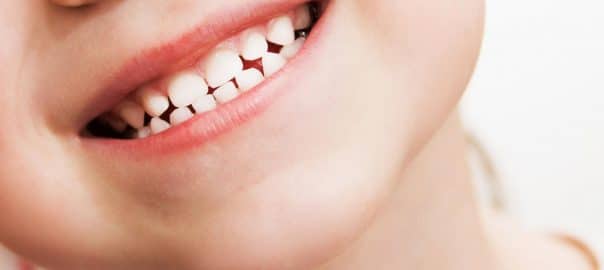
Primary Teeth Importance: Why You Should Worry About Your Little One’s Teeth
Primary teeth importance is something that is often overlooked. Many parents figure that because their child will lose their baby teeth, they don’t have to pay too much attention to oral hygiene. The truth is that primary teeth importance has a lot to do with the development of your child’s adult teeth. Let’s take a closer look at baby teeth, how they evolve, and why it’s important to maintain your child’s oral health.
The Evolution of Baby Teeth
Babies have 20 primary teeth that erupt as they grow. Believe it or not, these teeth are already present in the jaws at birth. They typically begin to emerge where they can be seen from the ages of 6 months to one year, but every child is different when it comes to teething.
By the time most children hit three-years-old, they have a full set of baby teeth. Primary teeth importance is often overlooked because parents know that their children will lose their baby teeth before their permanent teeth come in.
Just as children’s teeth come in at different times, the order in which their teeth come in may vary. Despite the fact that every child is different, there is a common order in which most children’s baby teeth emerge. As teeth emerge, babies will suffer from sore or tender gums. This is why most parents report “teething” to be a miserable time for their little ones.
Primary Teeth Importance
Primary teeth importance is directly linked to your child’s health and development. When someone says baby teeth matter, it is absolutely true. Primary teeth importance is linked to chewing, speaking, and smiling. The baby teeth are used to hold a space in the jaw until permanent teeth are ready to emerge.
When a baby tooth is lost early, permanent teeth can drift into the empty space and make it difficult for adult teeth to find their way when they all come in. This makes the rest of your teeth come in crooked or crowded, which can create a need for more extensive orthodontic treatment. That’s why primary teeth importance is a topic that most parents should learn about while their young ones develop. Good oral hygiene is a great way to protect your child’s teeth for years to come.
How Can You Properly Care for Primary Teeth?
Start your child with regular dental visits when their first tooth appears. Make sure they visit a dentist no later than one-year-old. Early dental check-ups for babies can help track the development of their teeth. As their primary teeth come in, your child’s dentist will check for cavities or other problems and show you how to properly clean their teeth. You may even want to discuss things like thumb sucking.
Even before your child’s teeth develop, you should start practicing oral hygiene. Babies’ mouths should be cleaned as early as the newborn stages. This is done by wiping the gums with a clean, moist gauze pad or washcloth. One important fact to consider is that as soon as teeth emerge, decay can occur. Talk to your dentist about the best way to clean your child’s baby teeth.
For children younger than three-years-old, you should start brushing their teeth as soon as they emerge, using fluoride toothpaste in a small smear or the size of a grain of rice. Like any other oral hygiene practice, brush them twice a day or as directed by your dentist. At this age, tooth cleaning should always be done by the parent.
For children three to six years of age, a pea-sized amount of fluoride toothpaste should be used to clean teeth. Brush twice a day as suggested by your dentist. And, you should also be the one brushing the teeth to avoid using too much toothpaste or swallowing the toothpaste. It is not recommended that children should completely brush on their own until the age of eight-years-old. That’s because the oral hygiene routine is such an important part of your overall health.
Now that you understand primary teeth importance, you can ensure your child’s teeth remain healthy and in line for proper development. If you have questions, talk to your orthodontist or dentist about the needs of your child.
